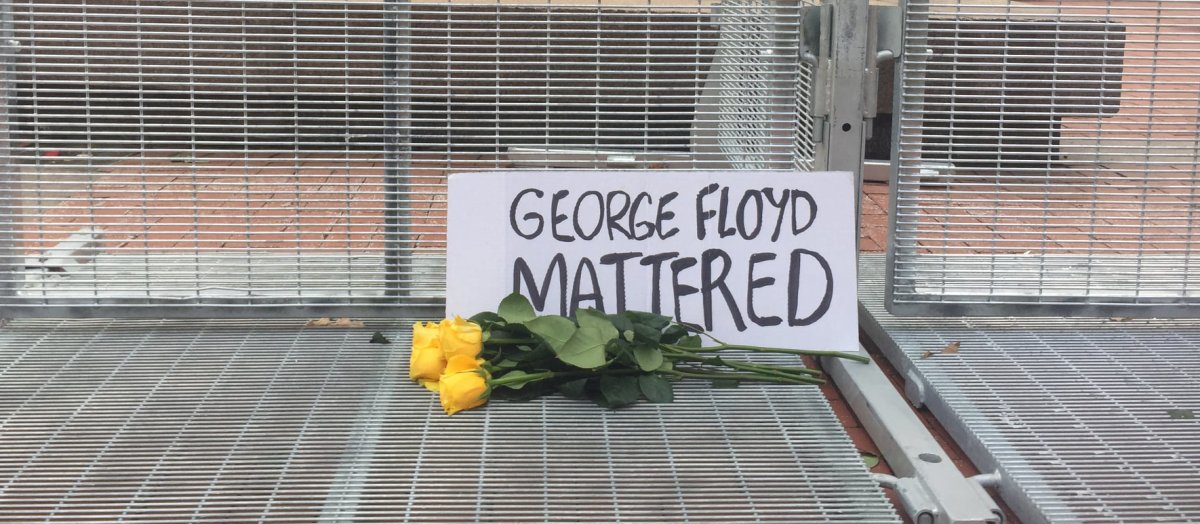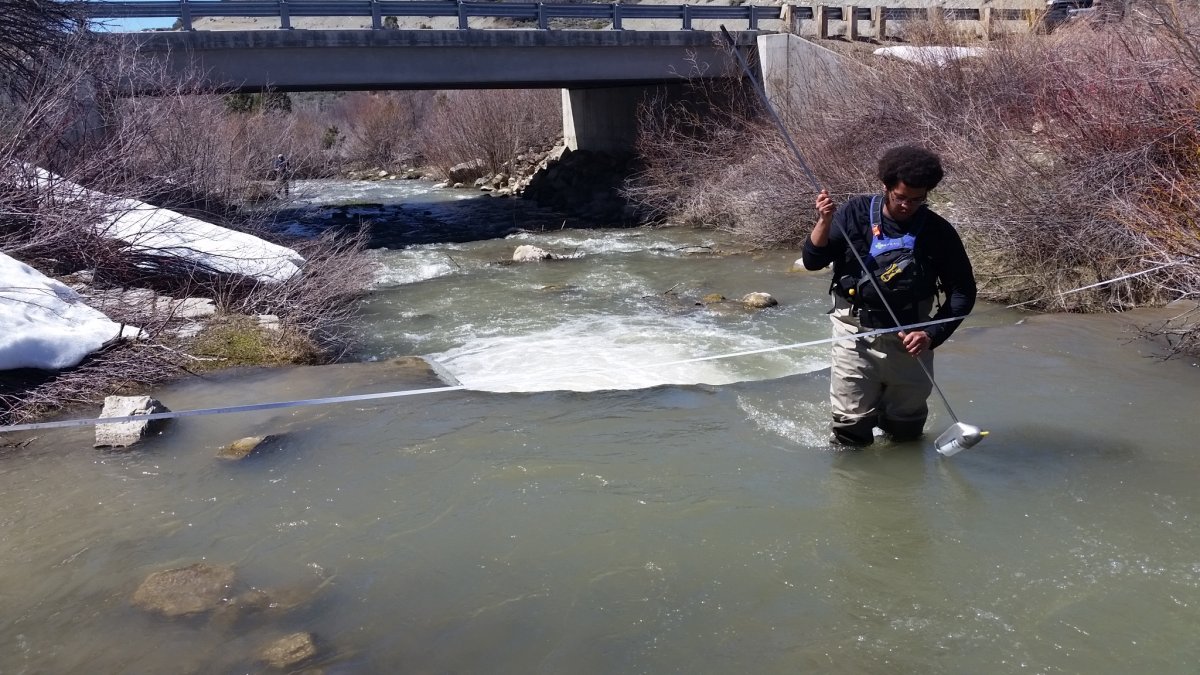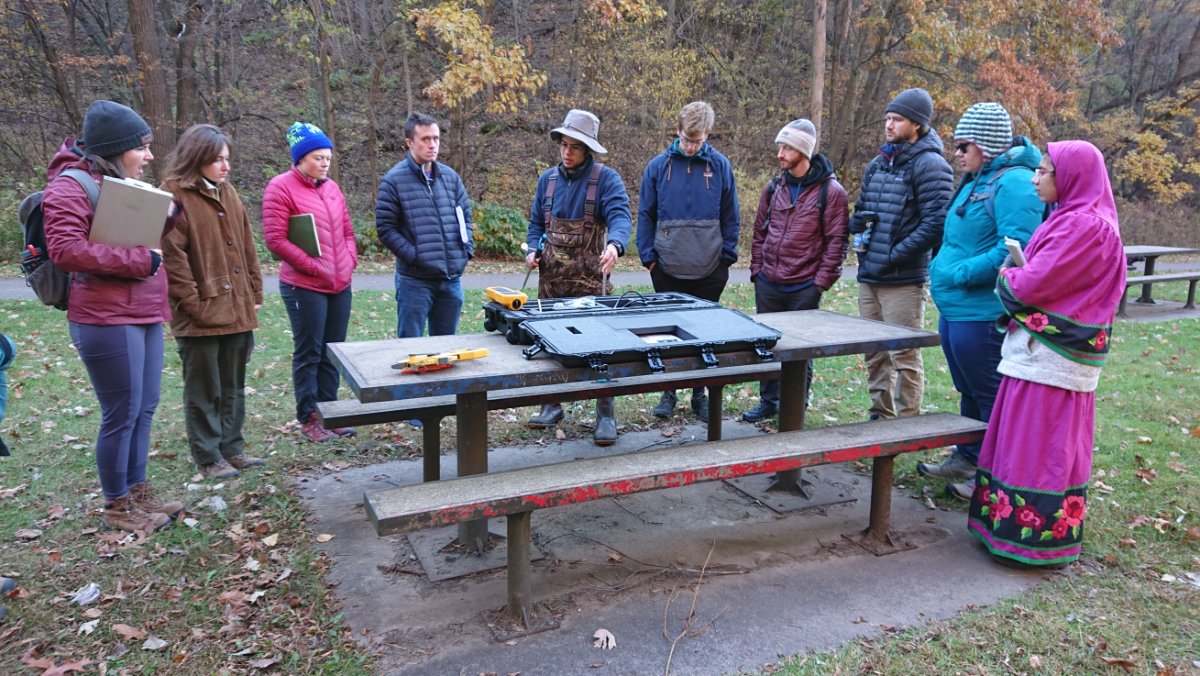SAFL’s Jabari Jones on Racism, Environmental Justice and the Way Forward

In May 2020, Jabari Jones, a graduate student of the St. Anthony Falls Laboratory (SAFL) and the Department of Earth & Environmental Sciences (ESCI), joined hundreds of other Minnesotans on the streets of Minneapolis to protest the murder of George Floyd by a police officer.
“As a mixed-race black man who has spent 25 of his 28 years in South Minneapolis, the killing of George Floyd was closer to home than any of the police-involved killings that have made headlines in recent years,” Jabari shares.
In the following days and weeks, Jabari continued his activism, watching as a movement for Black lives spread around the world. During this time, Jabari found himself asking difficult questions. How did his activism intersect with his life as a PhD student at the University of Minnesota? Could he count on his fellow geoscientists to take action, recognizing the need for transformative change within their own field?
“From the initial days and throughout the summer, I was thinking about how what I was doing – protesting and volunteering – fit in with this other life that I’m living at the U,” Jabari says.
This June, Jabari published an editorial in AGU Advances titled “We Need Accomplices, Not Allies in the Fight for an Equitable Geoscience.” In the piece, Jabari offers his personal reflections as a Black geoscientist while presenting his colleagues with actionable suggestions for change. Fundamentally, Jabari would like to see a shift from allyship – which can be temporary and conditioned – to complicity, an idea he credits to Accomplices, Not Allies, a zine from the Indigenous Action Network.
As Jabari writes, “Compared to an ally, an accomplice assumes a greater amount of risk to take an active, substantive role to challenge and overthrow the systems, institutions, and norms that lead to inequality.”

Jabari’s suggestions for change include developing K-12 outreach programs, building meaningful connections with local groups and centering diversity, equity and inclusion (DEI) by creating employment opportunities in DEI and incorporating a focus on environmental justice in research and teaching.
“Put the goal of equity ahead of yourself,” Jabari writes. “Overthrowing systems of inequality is difficult work, and we won’t always agree on the best way forward. It is human nature to be defensive when challenged, but if we truly believe in the work of equity, we can’t let our own feelings stand in the way of achieving the goal.”
As both a scientist and teacher, Jabari has found ways to bring discussions of race and environmental justice into his work. Along with Lucy Andrews (University of California, Berkely), Jessica Balerna (University of South Florida), Vincent Chireh (University of British Columbia), Nada Saidi (University of Dundee) and Jenny Rempel (UC-Berkely), Jabari is part of a project called “Is Your Project just water or Just Water: Environmental Justice in Stream Restoration.” Together, the team is working to unravel the social, demographic and economic factors that influence stream restoration planning and siting. This is a perspective that is often left behind, with researchers and practitioners often focusing solely on hydrology, geomorphology and ecology.

As a teacher – he instructed a geomorphology course at Carleton College – Jabari has found his undergraduate students enthusiastic to engage in broader discussions about race and environmental justice as they relate to the geosciences. Last fall, Jabari brought in guest speakers to talk to his class about the Colorado River. One of them was Nikki Cooley, a Navajo woman recognized for her work in climate change adaptation in northern Arizona. Beyond science, Nikki spoke about her perspective as a Native woman and river guide. “Students said it was one of their favorite things from the semester,” Jabari shares.
Jabari is also at work planning a community-university research summit with partners Maddy Nyblade (Department of Earth & Environmental Sciences graduate student), Kali Mansur (ESCI undergraduate) and Kat Catner (Science and Outreach Coordinator with the Continental Scientific Drilling Coordination Office).
“I think a lot about the fact that the University straddles the two biggest cities in Minnesota, with the Metro being the most racially diverse place in the state,” Jabari says. “If we’re serious about diversity, it makes sense to look here first.”
The summit organizers hope that, by centering the concerns and questions of local partners, they can empower community members to address environmental issues while helping University scientists to build sustainable relationships with our neighbors.
In recent months, Jabari has been heartened by the formation of the Unlearning Racism in Geoscience initiative, or URGE. “There’s a temptation to go back to life as usual,” Jabari says. “But [addressing racism] is a continuous job to be working on.”
Read Jabari Jones’ “We Need Accomplices, Not Allies in the Fight for an Equitable Geoscience.”
